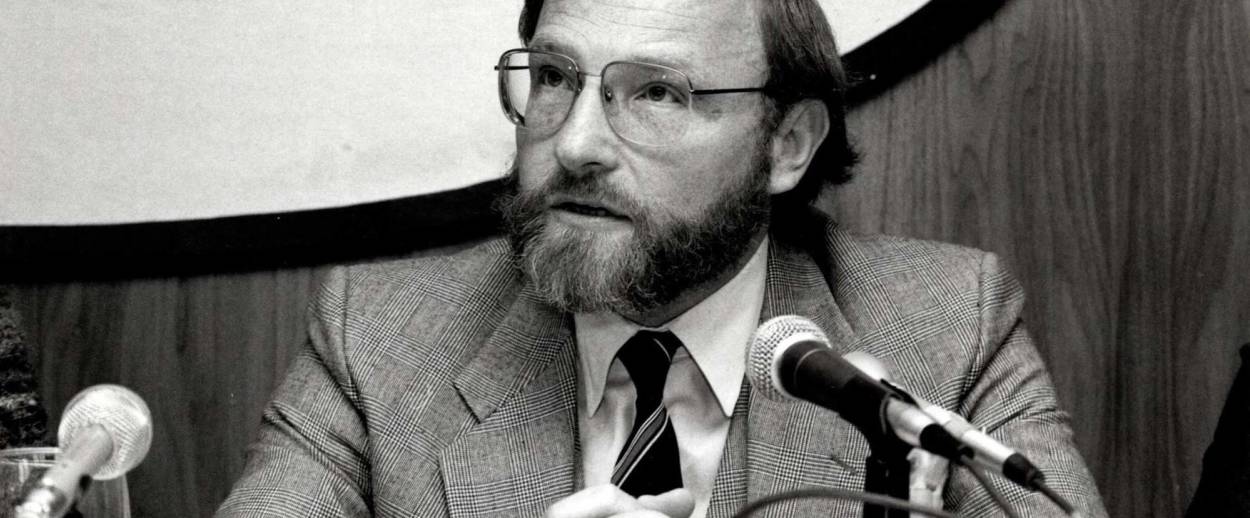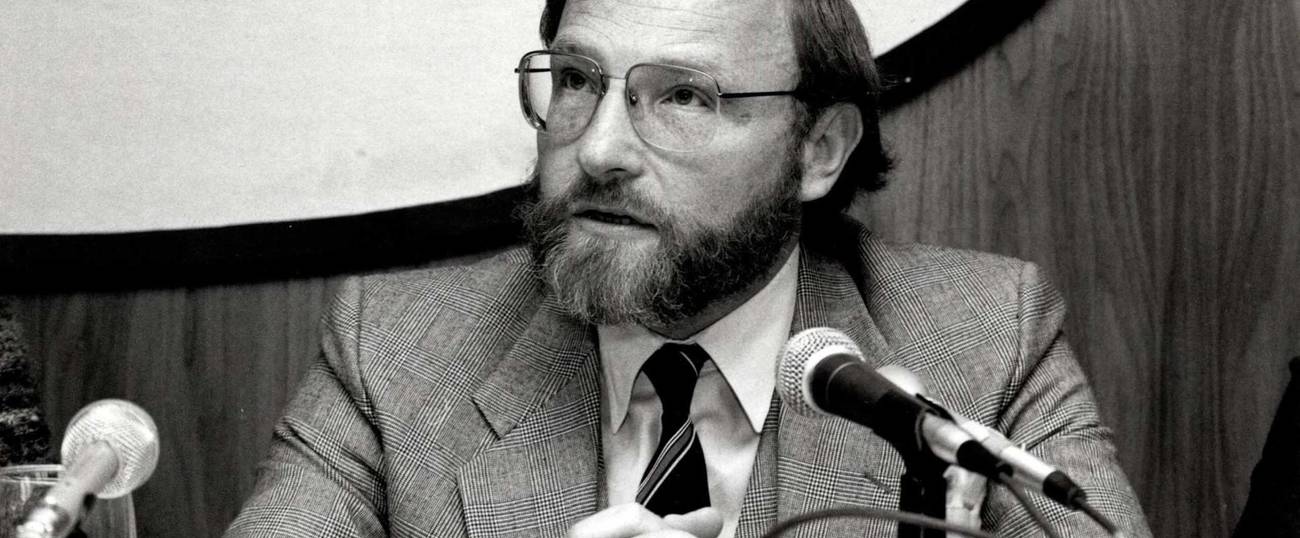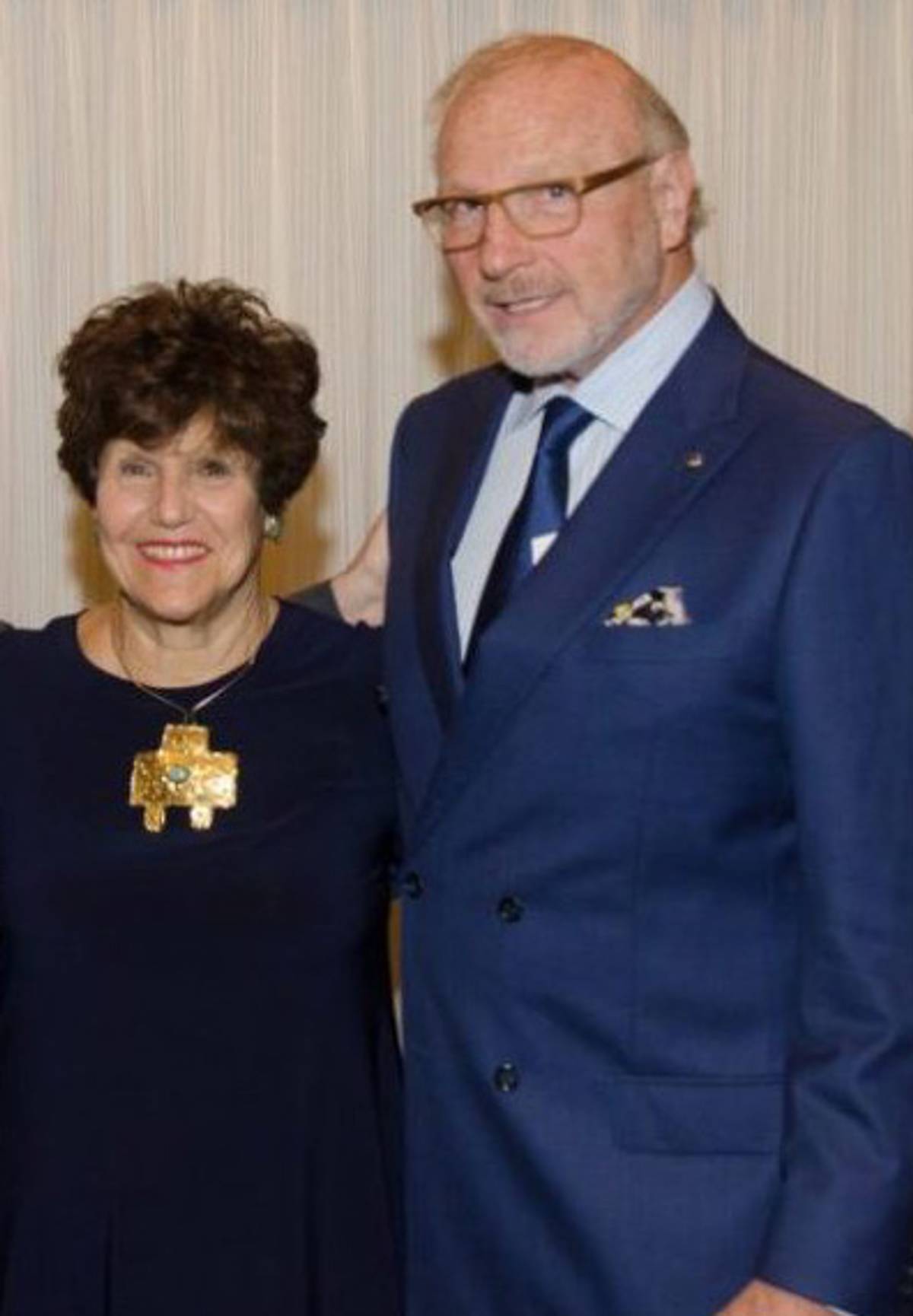Remembering Allan Gerson, Fierce Defender of Victims’ Rights
His campaign to hold Libya accountable for the attack on Pan Am Flight 103 resulted in a massive settlement—and a shift in attitudes toward terror-supporting states




After a terrorist attack took down Pan Am Flight 103 from Frankfurt to Detroit on December 21, 1988—killing all on board and several more people on the ground—it was assumed that there was little that could be done to bring the perpetrators to justice. The attack, it soon became clear, was perpetrated by Libyan agents, which made either a civil suit or a criminal prosecution unlikely—according to the principle of sovereign immunity, foreign governments are above such proceedings.
Allan Gerson disagreed. An attorney and the son of Jewish refugees from Poland who had fled to the east and spent part of World War II in Siberian Labor camps, he believed the orchestrators of mass violence shouldn’t be permitted to hide behind legal technicalities. Representing the husband of one of the victims, Gerson embarked on a long campaign that resulted, decades later, in a $2.7 billion settlement, as well as in legislative measures making it easier to hold terror-sponsoring states accountable.
Gerson, who passed away on December 1 after a brief bout with Creutzfeldt-Jakob, a degenerative brain disease, was 74.

After earning law degrees from New York University, the Hebrew University in Jerusalem, and Yale, Gerson joined the U.S. Justice Department in 1977, working first as a trial attorney and later with the Office of Special Investigations of the Criminal Division, where he focused on finding and deporting Nazi war criminals who had found their way to the United States. His dedication and abilities caught the attention of Jeane Kirkpatrick, the American ambassador to the United Nations, who appointed Gerson her Senior Counsel. He retained his position under Kirkpatrick’s successor, General Vernon Walters, before serving as Deputy Assistant Attorney General for Legal Counsel and Counselor for International Affairs with the U.S. Department of Justice.
Despite holding a number of distinguished posts—including being a senior fellow at both the American Enterprise Institute and the Council on Foreign Relations—it was his leadership on the Pan Am attack that earned him his reputation as a champion of civil and human rights. “Terrorists who might be undeterred by the threat of American military force,” he wrote in his account of the case, The Price of Terror (co-written with journalist Jerry Adler), “must now weigh the possibility of retaliation by the world’s largest contingent of lawyers.”
An accomplished photographer and jewelry designer, his work is held in several museums and private collections. He is survived by his wife, renowned cookbook author and Tablet contributor Joan Nathan, and their children, Daniela, David, and Merissa, a Tablet contributor as well.
Liel Leibovitz is editor-at-large for Tablet Magazine and a host of its weekly culture podcast Unorthodox and daily Talmud podcast Take One. He is the editor of Zionism: The Tablet Guide.